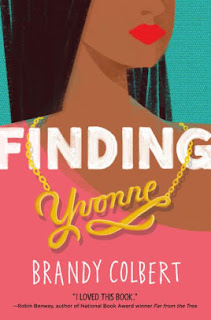Stacia and her best friend Clio, along with their friend
Pol, have been inseparable on their quiet agricultural planet on the far
reaches of the Union. Stacia dreams of
excitement and seeing the kinds of spaceships she’s only ever seen on holo
displays. So, when an elite astronika
spaceship appears in the sky and lands nearby, Stacia is excited. That is, until troops round up everyone.
Something big is happening in this quiet corner of the galaxy, a fact which is reinforced when the Direktor Eminent Alexei Volkov -- ruler of the Union -- himself appears. He announces that Princess
Anya Leonova, the youngest member of the royal family, all of whom were allegedly killed sixteen years ago, is in
fact still alive and living here on Stacia’s planet. Volkov wants her found and starts a violent
campaign to rout her out. Along with the others, Stacia wonders
who she is. She is shocked when she herself is accused of being the lost princess.
Soon enough she is fleeing for her life, finding friends
along the way to help her survive from one crisis to another. There are loyalists still trying to support
the Leonov line and Volkov and his Union baddies trying to capture her. Both sides are convinced that Stacia/Anya
holds the key to finding the Firebird (an instrument which could grant the holder the ability
to control the universe). Both sides
are ruthless in their search for it and for her. A
high body count and lots of near-death experiences ensue in this fast-paced but lengthy sci-fi adventure.
Khoury has fun using a lot of Russian-sounding names
and Russ-lish words in the story. It’s a
cute motif, but more than a bit distracting when you speak the language and
happen to be an expert on Russian names. It's obvious that she’s chosen random words and tossed
them in. That’s a wasted opportunity as
using words with meanings would have added a nice layer of complexity. But I will acknowledge that I’m uniquely
sensitive to that flaw.
I liked Stacia as a character and her major sidekicks (Pol,
Ryan, and Mara) have useful supporting roles.
Everyone has a unique contribution to make. But this is an action story
and characters are mostly disposable (most of them are not only killed off, but several are actually killed off twice!). Nothing drags more than when Khoury fans the romantic flames and tries to
heat up things between Stacia and Pol. Such quiet moments are mostly a distraction in a story that rarely slows
down for much else. Some nice attempts at the end to point out
that love triumphs over hate in the long run are hastily added, but really life
is too cheap in this story for that message to mean much.
[Disclaimer: I received an ARC for this book from the
publisher in return for an unbiased review.
The book is scheduled for release on February 26th]








